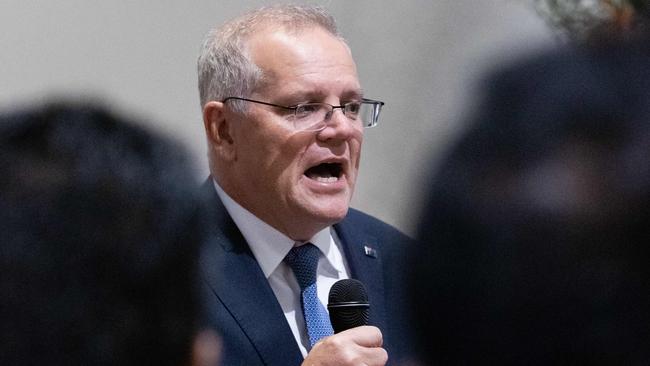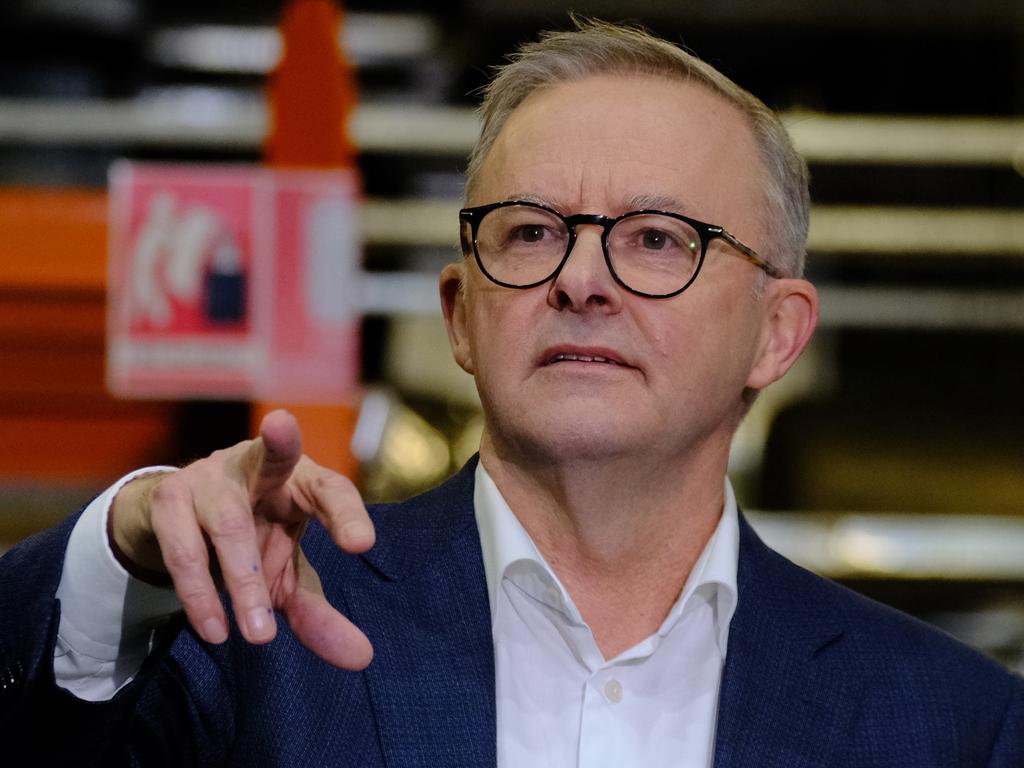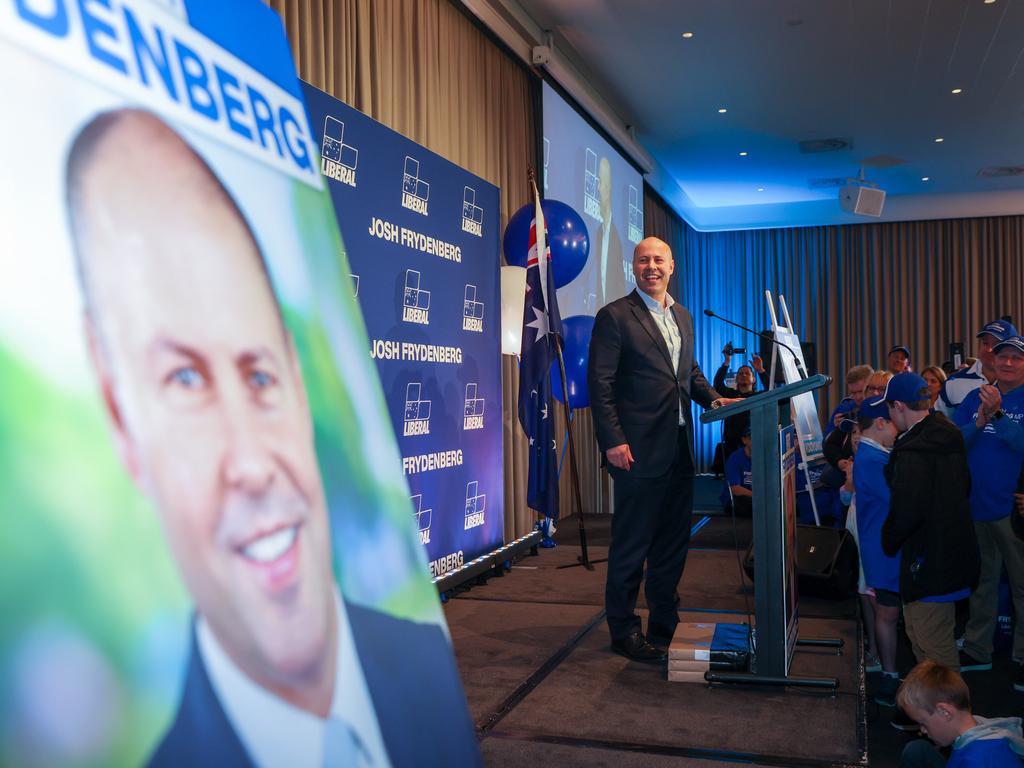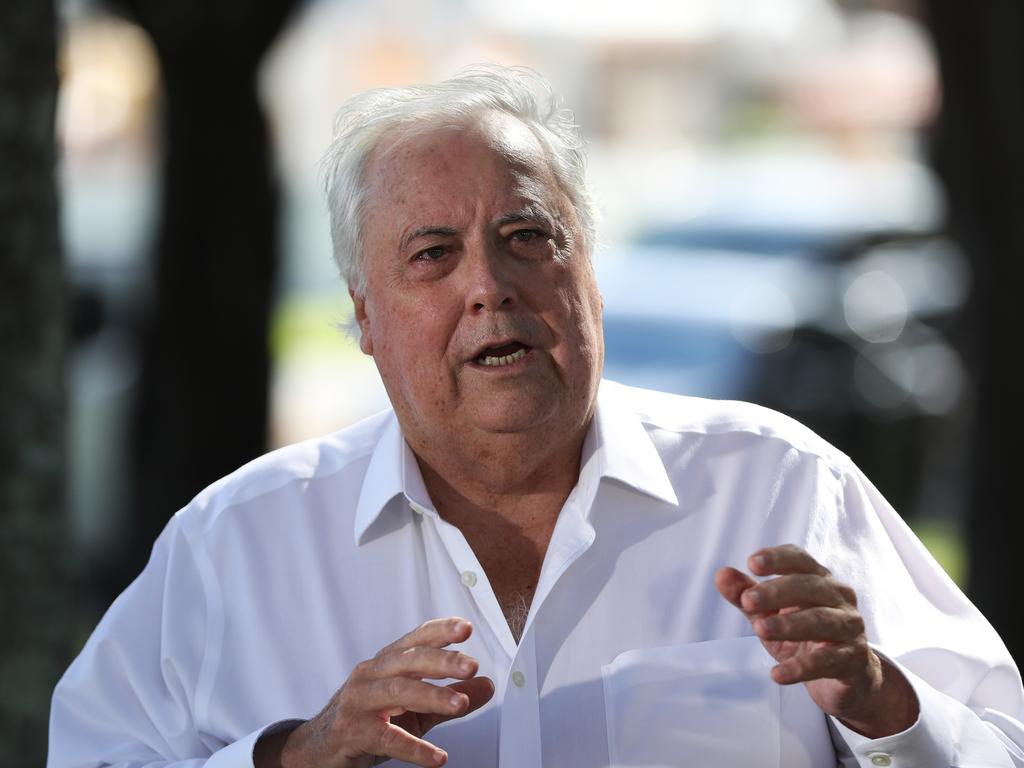Federal election 2022: Scott Morrison warns of Anthony Albanese’s reckless, dangerous wages plan
Scott Morrison has accused Anthony Albanese of engineering a reckless and dangerous act by supporting at least a 5.1 per cent minimum wage increase.

Scott Morrison has accused Anthony Albanese of being reckless and dangerous by supporting at least a 5.1 per cent minimum wage increase, warning inflation and interest rates would rise further while small businesses would face a significant hit to their costs.
Economists backed the Prime Minister’s warning, declaring a rise in the minimum wage of 5 per cent would lead to higher inflation and put pressure on the Reserve Bank to further raise interest rates while business groups described an increase above 3 per cent as “unsustainable’’.
The Opposition Leader had earlier on Tuesday refused to back the ACTU’s revised claim for a 5.5 per cent increase as it was higher than the inflation rate but he insisted “people can’t afford to go backwards”. Asked later if he supported a 5.1 per cent increase just to keep pace with inflation, he replied: “Absolutely.”
Mr Albanese has been attacking the government for sluggish wage growth but criticism of his support for a 5.1 per cent wage increase by economists and business was seized on by Mr Morrison as evidence of Labor’s inability to manage the economy.
In an exclusive interview with The Australian, Mr Morrison said that while he supported a lift in wages for workers, the Labor leader had engaged in a “reckless and dangerous” act in announcing he would seek such a dramatic rise without any economic analysis to support it.
“It has all of these impacts but the more significant issue is just how reckless he was in blurting this out without thinking this through,” Mr Morrison said.

“Who pays for this? Wages don’t just fall from the sky. They have to be paid by businesses, and business have to make profits and they have to be in an economy that is doing well.
“This is the great danger of him. His knowledge, experience and awareness of these things is that of a novice. It doesn’t even occur to him, the compounding effects of what he’s talking about.
“It is a very dangerous practice that he has exposed himself to today. Setting those types of precedents isn’t well considered.
“It is very risky proposition for an Australian economy with the pressures it has on it.”
CBA’s head of Australian economics, Gareth Aird, said lifting the minimum wage by 5 per cent “all else being equal, means higher inflation”, which would put pressure on the RBA to raise rates further to get consumer price growth back under control.
In new submissions to the Fair Work Commission, business groups also called for the minimum wage rise this year to be no more than 3 per cent, describing a 5.1 per cent increase as “unsustainable”.
Australian Industry Group chief executive Innes Willox backed a 2.5 per cent increase, which amounted to a $19.30-a-week rise for workers paid the minimum wage and about $22.50 a week for award-reliant workers at the base trade level.
“An excessive minimum wage increase would fuel inflation and lead to higher interest rates on mortgages, personal loans and credit cards than would otherwise be the case,” Mr Willox said. “Higher inflation and higher interest rates would have a particularly harsh impact on the low-paid.”
The Australian Chamber of Commerce and Industry backed a 3 per cent rise which its chief executive, Andrew McKellar, said was the largest annual rise the organisation had ever supported.
But he said imposing unaffordable wage increases on small businesses would cruel jobs, not create them. “Any increase of 5 per cent or more would inflict further pain on small business, and the millions of jobs they sustain and create,” Mr McKellar said.
“Small business cannot afford it. Small and family businesses support reasonable wage increases in 2022.
“But if we exceed the moderate levels that balance what businesses can afford and community expectations, jobs and businesses will be lost.”
ACTU secretary Sally McManus said workers needed a federal government and a prime minister who would step up and do what they could to generate wage growth.
“On one hand we have a Prime Minister who doesn’t think that low wage growth is an issue and doesn’t think it’s his job to fix it,” she said.
“On the other, we have a party and a leader who know that working people need pay rises and are willing to do the hard work to generate the wage growth that we need. That is a night-and-day difference for working people who cannot afford another three years of a government that is missing in action on wage growth.”
Economists said it was not unreasonable to provide wage increases for low to medium-paid workers to help cope with climbing cost-of-living pressures. But they also warned that a 5 per cent-plus rise in minimum pay rates would add to inflation and trigger faster rate hikes.
Judo Bank economic Adviser Warren Hogan was supportive of a big lift in minimum pay rates, saying the country was experiencing a “big adjustment to a new level of interest rates and inflation, and wages have to be part of that story”.
Mr Hogan, a former ANZ chief economist, said such an outcome would drive the RBA to step up the pace of rate rises this year to contain the inflationary impact of higher workers’ earnings and spending. He said “the great bulk” of businesses should be able to afford a “one-off reset in wages”, and that the Fair Work Commission played a “critical” role in preventing the development of an “underclass of working poor”.
Labor does not believe that raising the minimum wage to keep pace with cost-of-living pressures would make a material difference to inflationary pressures.
Speaking on the ABC’s 7.30, Mr Albanese defended his push for a minimum-wage increase in line with inflation, arguing that the Fair Work Commission recently recommended a wage increase to 2.5 per cent when inflation levels were 1.1 per cent.
Mr Albanese said he believed workers on the minimum wage of $20.33 “shouldn’t fall further behind” and called on the Morrison government to make a submission to the Fair Work Commission’s review on wages.
Melbourne University economics professor Jeff Borland said the Fair Work Commission’s decisions around the minimum wage typically followed inflation.
Professor Borland, a leading labour market economist, said a 5 per cent increase in the minimum wage would be high in the context of the low inflationary environment of the past 30 years, but “not completely out of proportion” with rises of 3.5 per cent as recently as 2018.







To join the conversation, please log in. Don't have an account? Register
Join the conversation, you are commenting as Logout